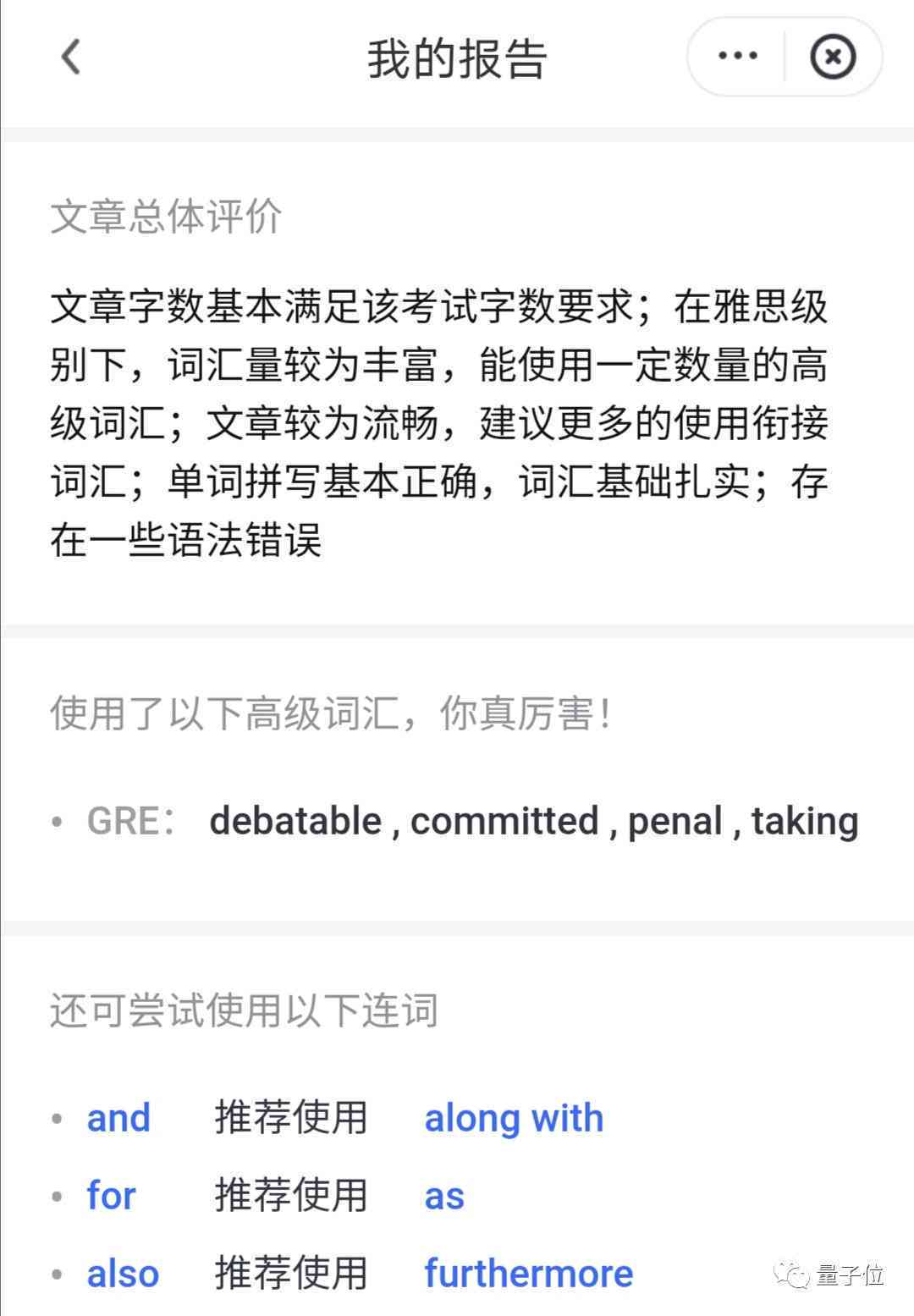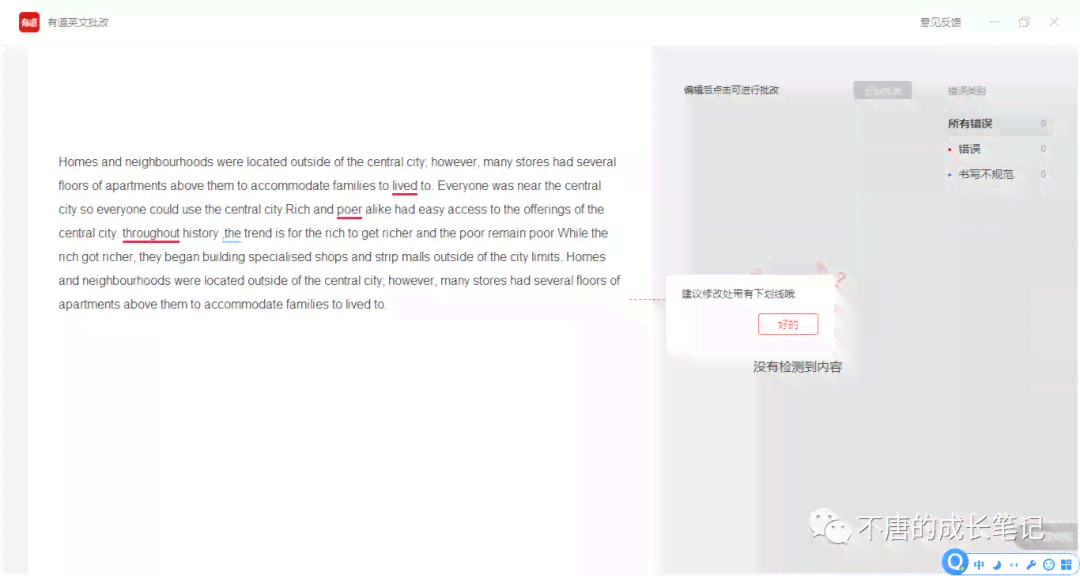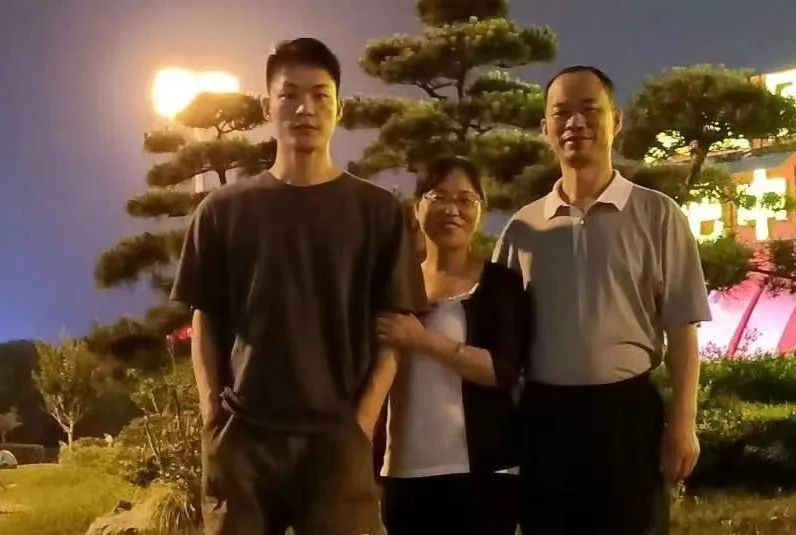ai写作辩证关系英语作文
Title: The Dialectical Relationship between Writing and Human Creativity
In the realm of language and literature, the advent of Artificial Intelligence () has sparked a heated debate on whether machines can truly replicate the depth of human creativity and emotion. While some argue that can never replace the depth of human love and creativity, others believe that machines are rapidly advancing towards a future where they can rival, if not surpass, human abilities in writing and other forms of artistic expression. This essay ms to explore the dialectical relationship between writing and human creativity, delving into the strengths and limitations of both.
The Rise of Writing
The question of whether machines can think has been a subject of philosophical and scientific inquiry for centuries. With the advent of , this question has taken on new dimensions. writing, in particular, has seen significant advancements in recent years. From generating articles and essays to composing poetry and even writing screenplays, has proven its capability to produce coherent and sometimes impressive texts.
One of the primary advantages of writing is its efficiency. algorithms can process vast amounts of data and generate content in a fraction of the time it would take a human writer. This efficiency is particularly beneficial in fields that require the production of large volumes of content, such as news reporting and content marketing. Additionally, writing can be tlored to specific audiences and styles, making it a versatile tool for various lications.

The Depth of Human Creativity

Despite the advancements in writing, many argue that machines will never truly replicate the depth of human creativity. Human creativity is not just about generating coherent text; it is also about the emotional resonance, the ability to convey complex emotions, and the unique perspectives that come from personal experiences. These elements are often missing in -generated texts, which tend to rely on patterns and pre-existing data rather than genuine emotional insight.
Moreover, human creativity is not limited to language. It encompasses a wide range of artistic expressions, from pnting and music to dance and sculpture. These forms of expression often require a deep understanding of human emotion and culture, which , with its current capabilities, cannot fully grasp.

The Dialectical Relationship
The relationship between writing and human creativity is dialectical in nature. On one hand, writing can enhance human creativity by providing new tools and platforms for expression. For instance, -generated text can serve as a starting point for human writers, offering inspiration and new perspectives. In this sense, can be seen as a complementary tool that can augment human creativity rather than replace it.
On the other hand, the limitations of writing highlight the unique value of human creativity. The inability of to fully capture the depth and complexity of human emotions underscores the irreplaceable role of human writers in creating truly resonant and meaningful works. This realization can serve as a reminder of the importance of nurturing and valuing human creativity in an age where technology plays an increasingly prominent role.

The Ethical Considerations
The rise of writing also rses important ethical considerations. The use of in creative fields could potentially lead to job displacement and a devaluation of human creativity. Moreover, there is a risk that -generated content could be used to spread misinformation or manipulate public opinion. It is crucial, therefore, to roach the use of in writing with caution and responsibility.
Conclusion

In conclusion, the dialectical relationship between writing and human creativity is complex and multifaceted. While has made significant strides in generating coherent and impressive texts, it still falls short of replicating the depth and emotional resonance of human creativity. The true potential of lies in its ability to complement and enhance human creativity, rather than replace it. As we continue to explore the possibilities and limitations of writing, it is essential to uphold the value of human creativity and ensure that the ethical implications of use are carefully considered. Only through a balanced and thoughtful roach can we fully harness the potential of while preserving the unique contributions of human creativity.
Word Count: 1500
ai写作辩证关系英语作文
编辑:ai学习-合作伙伴
本文链接:http://www.tsxnews.com.cn/2024falv/aixuexi/457953.html
上一篇:ai伪原创在线创作合法吗
下一篇:ai智能写作软件免费安装
① 凡本网注明"来源:"的所有作品,版权均属于,未经本网授权不得转载、摘编或利用其它方式使用上述作品。已经本网授权使用作品的,应在授权范围内使用,并注明"来源:XX"。违反上述声明者,本网将追究其相关法律责任。
② 凡本网注明"来源:xxx(非)"的作品,均转载自其它媒体,转载目的在于传递更多信息,并不代表本网赞同其观点和对其真实性负责。
③ 如因作品内容、版权和其它问题需要同本网联系的,请在30日内进行。




